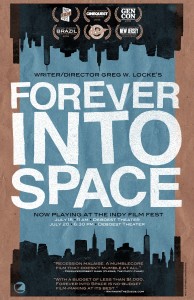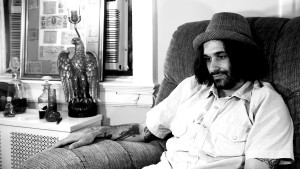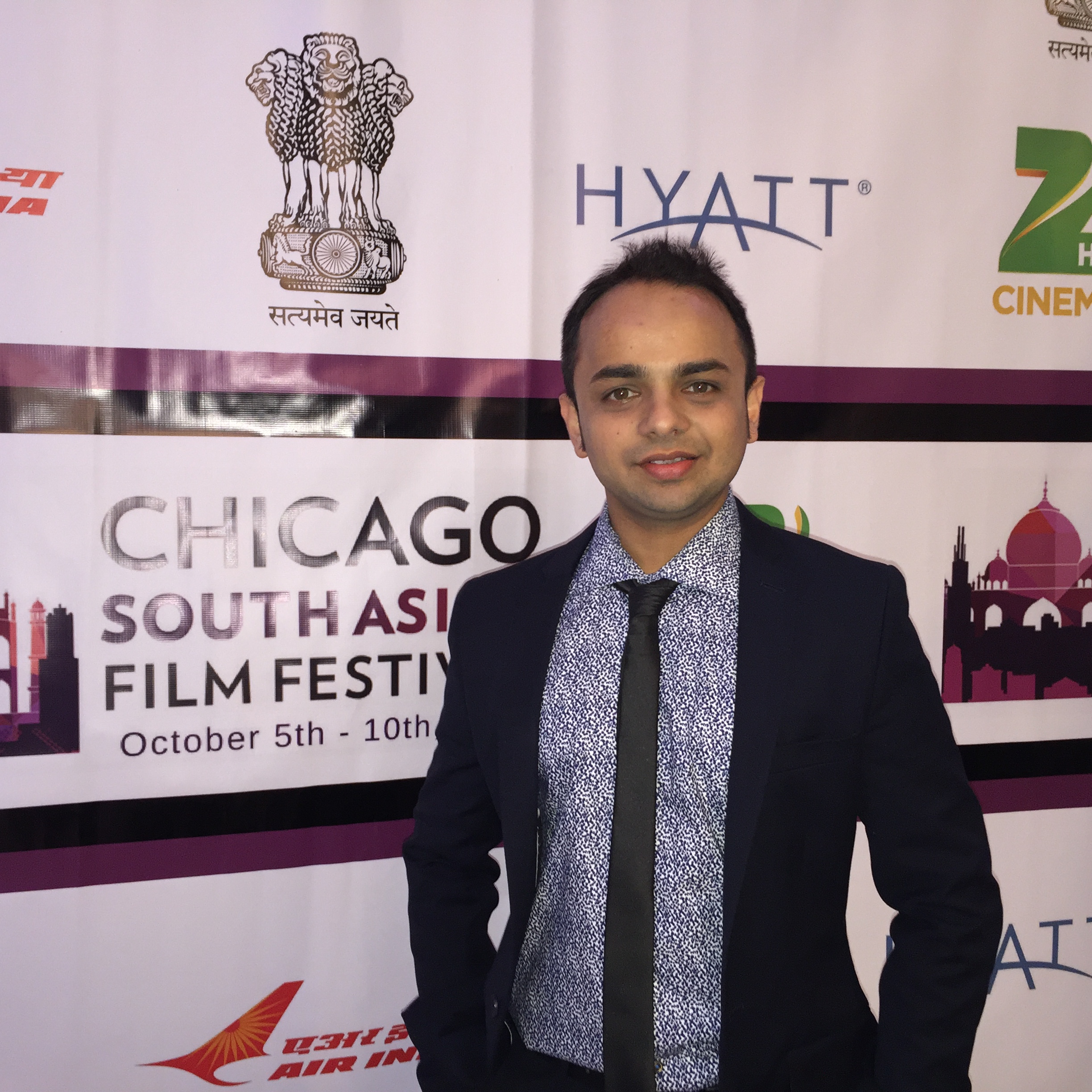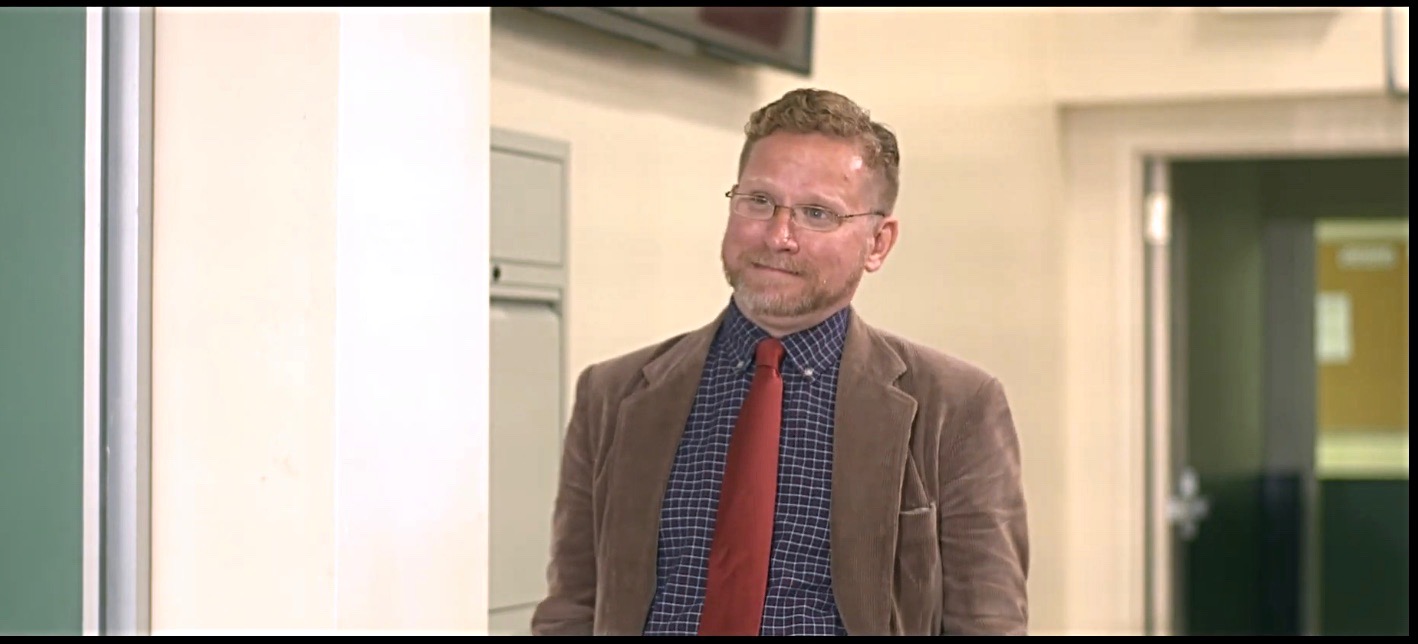
In Their Own Words: Director Greg W. Locke of “Forever Into Space”
One of the newer indie films that made its way into the email inbox here at OneFilmFan.com was the micro-budget offering “Forever Into Space”. Thanks to lead actress Kelly Sebastian and her reaching out to the site, a screening of the film, its subsequent review here, and an accompanying interview with Ms. Sebastian allowed us to get great insight into this very realistic, character-driven story about a group of friends living in NYC and trying to make something of their lives. As the film opened the New Jersey Film Festival and launched its current Film Festival run, a statement on Twitter struck deeply–no one had interviewed the film’s director Greg W. Locke. So, taking it upon myself to correct this, I now present to you OneFilmFan.com’s efforts to do exactly that, which has been accomplished despite some hard life circumstances coming about in said director’s existence. And that makes this an even more special opportunity to allow Mr. Locke the chance to talk about everything and anything asked. Welcome to Greg W. Locke!
One Film Fan: The story so far, how were you first drawn to the film business? When did it become evident that directing was going to be your career focus?
Greg W. Locke: I spent the better part of a decade trying to write screenplays. I wrote some truly terrible 280-page stories and a lot of decent first acts that never went anywhere. Directing felt impossible to me that whole time. I thought that if I wrote a few good scripts and sold them, someone would eventually invest in me as a filmmaker and hire me to direct one of my own scripts. I was scared of doing it all on my own and, through much of the 2000s, there wasn’t really a great way to make the kind of movie I wanted to make on the cheap. Eventually, I wrote a screenplay I thought was good.
I knew I needed to take some chances and just go for it, so I put together a plan and did some fundraising in my hometown, where I had been writing about film and music for the whole of my adult life. A year or so later, I had completed my first feature, an artsy music documentary called “Holler and the Moan”, about this really great singer/songwriter named Lee Miles. The movie played at some festivals and got a pretty good response. So that project, coupled with all the still-new technology that has been making filmmaking more affordable, gave me the courage to move to New York City and write what became “Forever Into Space”.
O.F.F.: How did you further learn the art (ie: mentors, influences, and schooling)?
G.W.L.: This is probably a cliché at this point, but the closest I came to film school was my long-running obsession with the Criterion Collection and IMDb. If I have an education in this medium at all, it came from commentary tracks and reading about film on the Internet. Godard told me there were no rules; Herzog told me to be brave; Jarmusch and Scorsese and Woody made me love New York City and want to be a part of it; and Cassavetes made me do it.
O.F.F.: Looking at your bio, you actually cover pretty much the WHOLE range of duties when making films. What is it like to take on that much each time?
G.W.L.: For my first three features, the third of which I’m currently shooting, I did do just about everything. Mostly because I work without a budget, but also because I tend to be a little controlling when it comes to making things. I’m working on that. Ideally, I would love to just write and direct and hire people who are better than me at everything else. I know that I can only be so good of a director the way I’ve been working because I’m balancing so many duties. So if you’re an aspiring DP or Editor or Producer and you like my work and don’t mind the style in which I work, hit me up (laughs).
O.F.F.: You began with short films for several years. How has the leap from those to a full length feature been for you?
G.W.L.: The short films and music videos were really just playing around. There was nothing at stake, I just liked making things, and I had some friends who were good musicians. So music videos it was. Through those little projects I got a big ‘ol filmmaking bug. Nothing felt better than staying up all night editing, or going home and reviewing footage, or uploading some new work on the Internet and sharing it. I went to school for fine art and worked as a writer and have always been very involved with music and visual arts in general, so combining all of those things into one craft was – and is – so exciting for me.
The jump to making my first feature was a very modest one. I essentially made a documentary about a guy who lived down the street from me and had made himself fully available to me. Making “Forever Into Space” in New York City with a bunch of strangers – now that’s a different story. That took everything I had and then some. It’s the project where I’ve grown the most. It was the most exhausting and stressful thing I’ve ever done, if mostly because of that whole “biggest movie possible for the smallest amount of money” approach.
O.F.F.: So, onto your current project, “Forever Into Space”, on the festival circuit currently, having successfully opened the New Jersey Film Festival! Tell us about that first!
G.W.L.: We premiered at the Cinequest Film Festival in California at the end of February and were nominated for the Maverick Award. We lost. That fest was big for us, as Cinequest was recently named “The Best American Film Festival” by Time Magazine. So we flew out and made a big deal of it. More recently, we opened the New Jersey International Film Festival, which was also a blast. We have several other festival screenings around the world coming up in the next few months, so it’s been a wild, exhausting, fun year so far. Seeing the movie on a big screen is beyond cool.
O.F.F.: What drew you to make this film?
G.W.L.: Young people. Millennials. And I’m certainly not the first person to try to make their name by making a cool black and white movie about struggling young people in New York City. Jarmusch’s first two films. “She’s Gotta Have It”, Bennett Miller’s “The Cruise”, my love for Woody Allen’s “Manhattan”, and so many other great, artsy, black and white films set in New York City. Even if my movie never gets any notable recognition, alone, at night, when no one is looking, I get to feel like I’m part of New York City’s history.
If only a teeny, tiny freckle. If you can at all relate to how much I love this city, then you probably understand why just having this movie exist means so much to me. All that being said, I watched it again recently while putting together subtitles and I thought it was good. Not great, but I hope it will be thought of as an accomplishment worth seeing when judged within the context of how it was made. For nothing.
O.F.F.: For those who haven’t seen it yet, give us your synopsis of the story.
G.W.L.: It’s really just about a time and a place. New York City in 2013. We hang out with a group of friends in the city and see them struggle and grow and fail and win. And they’re all adorable, the music is cool, and you get to see the city for what it was in 2013. There’s definitely a verite element that I think makes the film feel like something of a document at times. It’s slow and artsy and weird.
It’s the kind of film I personally tend to love, and I only got to make such a film because of how I made it. There aren’t studios out there saying “Hey, let’s try to make a film that could play alongside both “Slacker” and one of Godard’s early 60s films”. There should be people saying that exact sentence, but there’s not. “Ant Man” is about as weird as Hollywood gets these days; so thank goodness for the technology that allows guys like Alex Ross Perry and Andrew Bujalski to make films.
O.F.F.: From our interview with lead actress Kelly Sebastian, and having seen the film, it really does paint a challenging picture of the fight to “make it” in New York City for the characters. Does film reflect real life in this respect?
G.W.L.: Oh absolutely. This is almost all taken from experience. Observation at the very least. That’s the point – document a time and a place. I have no idea how to pay next months rent! I am very likely going to get evicted if I don’t sell off my vinyl collection or rob a bodega or get lucky and find an investor for one of my million projects. So yes, New York City. It’s the toughest place I’ve ever lived. Absolutely unforgiving. I don’t have any family or friends who can or will invest in me like so many involved in the New York art world do, so it’s extra hard for me, not having a proper support system.
I’ve already been out scouting places to sleep if I get evicted. I’m putting together a plan in which I think I might be the first man to direct a feature film – my next feature, “Queen Roosevelt” – while sleeping in parks and showering at friend’s places. It’s hard to get work here. Everything is hard. I’ve been living on eggs and Two-Buck Chuck for months and, unless something happens soon, I may have to leave the city. I miss good wine. I miss nachos.
O.F.F.: How was it working with the actors like Kelly Sebastian, Julianna Pitt, Tyler Evan Rowe, Julia Kelly, and Oliver Fetter?
G.W.L.: They all brought different things to the project. Kelly is a great collaborator with an endless energy to create. To work. She definitely pushed me to see the project through and keep making it better.
O.F.F.: Ever feel like you wanted to be in front of the camera during the shoot? Or were you happy enough telling those guys what to do? LOL
G.W.L.: Instagram aside, I avoid being in the frame of any camera. I’m not someone to look at. Its my job to be the one who looks hardest. And I think I’m a writer before I’m a painter or director or Chicago sports fan. But I digress. As far as film goes, I’m focused on writing and directing. Those two tasks are my interests. That’s my annoying way of saying: “No, I have no interest in being on camera”.
O.F.F.: What other projects are on the horizon or would you LIKE to be involved in?
G.W.L.: I’ve been slowly shooting my next feature for a while now, which I’ve already mentioned at least a dozen times in this very interview. It’s fun and I’m hoping to start hitting it hard soon. (Note to all you rich bastards: We could really use a small investor!) The movie is about this girl who lives on Roosevelt Island. It’s about more than that though. I guess if “Forever Into Space” was about the financial stress and disparity in the city, “Queen Roosevelt” is about human connection and personal growth in the city.
Both are about young dreamers who want to be a part of the city. They’re sister films, if very different. I’m not going to tell you anymore about the movie because I haven’t even hardly been able to work on it yet. Other than “Queen Roosevelt”, I have some writing projects in the works that I’m chipping away at. And I paint almost every day.
O.F.F.: Independent film, in its many forms, remains one of the last bastions of truly character and story-driven efforts, just like “Forever Into Space”. Do you see yourself wanting to have that massive Hollywood blockbuster or, even with success, would you prefer to stay in the smaller, indie film world to tell your stories?
G.W.L.: That’s the kind of question only people who do weird work like me get asked. Here’s maybe what you’re REALLY saying: “You’re at least somewhat successful at doing really weird movie s@#%. It’s passable. I only sort of get the appeal but it seems like other people are enjoying it. Now I think we’re all probably at least sort of wondering if you can only do weird s@#%? Or what if someone came to you with some big bucks and the right project, would you do a more conventional studio thing?” You gotta direct movies to be asked that question. And my answer is that I’m only going to do projects that I believe I can make great and get personal creative satisfaction from.
If someone came to me and said that Terrence Malick saw my movie and wrote a $200 million sci-fi script for me to direct, I would say “No thank you. Terrence is one of my all-time heroes but I’m just not anywhere close to his level, nor the level of production expertise needed to make a $200 million sci-fi film”. But if they came to me with a $7 million Seth Rogen script about crude young a#&*$#@$, I would probably say “Seth is funny as hell, though sometimes in a manner that I find too predictable. And his third acts are embarrassing. That said, If I can work on the script a bit myself and see if it clicks for me, then we should talk more about the movie”. But hopefully someday I grow my skill set to the point where I can make some really epic, complex s@#%. For now, I make movies on the cheap. That old man Roger Corman should learn my name.
O.F.F.: Along those same lines, as a director, do you see indie film becoming a greater force in the film viewing world? How important is it that people promote/support indie filmmaking?
G.W.L.: People are going to watch what looks the most appealing to them at the moment their ass hits the couch. So much factors into that moment. Humor, comfort, excitement, knowledge. Maybe something thought provoking or frightening or carnal. For some people, part of the appeal is feeling like they’re doing the right thing. It’s “right” to watch the indie film over the Hollywood film. You’re contributing to the arts, if only in a tiny way, by picking the indie film. The problem is that Hollywood still makes some really solid movies and television and is suddenly one million times better than it ever was before. Indie films have more to compete with than ever.
Watch “The Brothers McMullen” now and tell me it’s a good movie. That it’s a movie worthy of breaking out of the micro-budget category and having a big theater run all over the world? That it’s a movie worthy of winning the Best Picture award at the Sundance Film Festival. It’s not even sort of good. But back then, when Ed Burns made the movie, the timing was right, and his tiny movie got big and it helped him really finally get his career going. It’s not like that anymore.
I think a lot of us now are just making these indie films because we hope the right person will see it and invest in us doing bigger things. Be that making a bigger tiny movie (e.g. “Beasts of the Southern Wild”) or directing for television or even just writing for television. This indie film game is little more than the minor leagues right now. Except in this sport, most of us throw knuckle balls and end up working at Staples.
O.F.F.: What advice would you give to someone looking to get into the film industry in general?
G.W.L.: Only do it if you’re incredibly – AND I MEAN INCREDIBLY – passionate about film, creative collaboration and expressing yourself.
O.F.F.: The classic ending question, as our readers well know! What is YOUR favorite film of all time? Why?
G.W.L.: In Indiana, most boys are pretty much raised on sports. So from age 13-17, I said either “Rocky” or “Hoop Dreams”. A few times I was like, “F@&% it, “Major League” is the best film ever made”. Then at 17 I saw “Taxi Driver” and that became my go-to answer for a long time. A very long time. Then I spent some years stroking my beard and saying “Days of Heaven”. I still say that one from time to time. Still say “Taxi Driver” here and there, too.
Then I started making movies and I credited “Pierrot le Fou”, “Slacker” and Jim Jarmusch movies for being the reason why I wanted to make movies so badly. And sometimes, I just say whatever great movie it was that I saw last. So I have a lot of answers for that question. It’s a big question. At this very moment I’ll say Nic Roeg’s “The Man Who Fell to Earth”. Or maybe “Love Streams” instead. Yeah, “Love Streams”.
Folks, honestly, it doesn’t get more candidly real than that! And what becomes clear here to me is the true passion for filmmaking and film in general that it represented here along with the often harsh realities of trying to exist within the indie film world and have the desire to do what you want, yet acknowledging the need for more backing or more support. And I know this reviewer has learned a lot about this level of film over the last 8 months from a multitude of directors and actors alike, and it just moreso makes Greg’s statements here even more potent and clear. A HUGE “Thank you!!” to Greg for taking this time to have the interview and make his ideas and projects known. Want to learn more about Greg and “Forever Into Space”? Check the following resources:
“Follow” Greg’s Twitter account: here
Greg’s Facebook: here
“Like” the film’s Facebook Page: here
The film’s Website: here
“Follow” the film’s Twitter account: here
Another amazing insight from someone who’s trying to make the dream of film continue to come true. Thank you reading, and continue to watch for more coverage of the indie film (and a little of the Hollywood film, too!) arena right here at OneFilmFan.com! Until next time, then!










